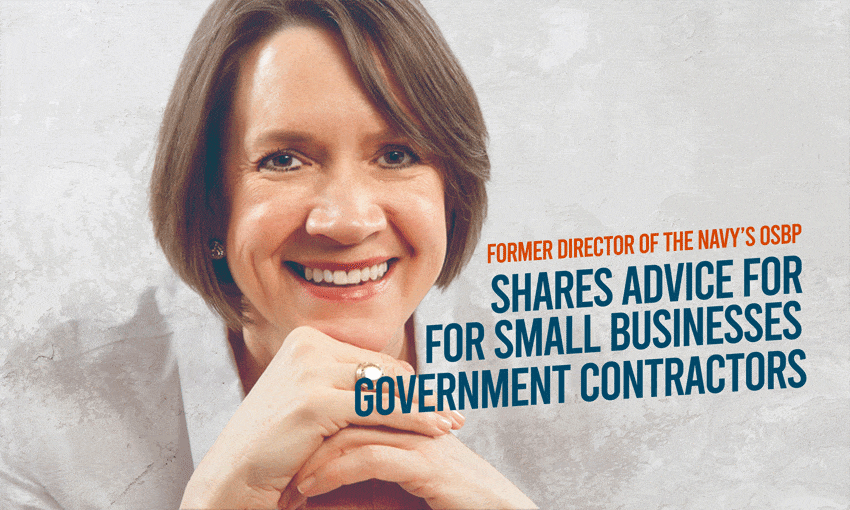With over 30 years of experience and service as a contracting officer and a small business professional under the Department of Navy, Emily Harman shares her story and advice for small businesses government contractors to take advantage of.
HOW DID SHE START?
Emily Harman is an active and experienced Supply Corps Officer, a contracting officer, and a lieutenant in the Navy for seven years.
Then, when she was in the reserves, she was moved into the Office of Small Business Programs (OSBP) at the Naval Air Systems Command and became the director of the Navy’s OSBP.
She is now retired in the army but she is currently working as a keynote speaker and personal coach. She also has her podcast, Onward, wherein she features authentic stories from people who have faced and overcome adversity.
“My goal with that podcast is to help people see how they can apply what they learn about in the podcast to their particular situation and face adversity and overcome it.”
HOW CAN THE GOVERNMENT HELP SMALL BUSINESSES?
As a former director of the Navy’s Office of Small Business Programs, Harman shared her point of view on how the government can increase small business participation.
1. Technology
When she was still in the Navy, Harman created an initiative to make sure that there are a handful of opportunities that will be given to small businesses. She believed that to get more traction from these businesses, the government should utilize technology.
“In order for contracting, government contracting, and acquisition to really work, you have to have a better mix of government industry communication; and government contracting officers and acquisition personnels need to understand industry; and the industry needs to understand the government. I think, especially the government, needs to understand how their decisions drive industry behavior and impact the price of the contract.”
2. Stories
Apart from using technology, Harman also thinks of using story in terms of changing the behavior of small businesses. Regardless of what technology is being used, she believed that a good story will always resonate with people.
“It needs to go to the government. It needs to go to program managers… You’ve got to get the people, the targeted audience, to listen.”
WHAT IS HER ADVICE FOR SMALL BUSINESSES?
Harman also shared her advice to small businesses in order to prepare them in working with the government.
1. Roles of Contracting Officers
One thing that some contractors failed to consider that contracting offers are the ones who award government contracts but they are not the ones who came up with the requirements.
They are just making sure that all the requirements and specifications are transferred into the contract and are met by government contractors.
Things beyond that point such as market research, pricing, and others can only be answered by suppliers, other businesses, or other technical people.
To help you figure out which organizations within the government buy what you are selling, you can search for previous contract awards and do your market research on the Federal Data Procurement System website and visit your area’s Procurement Technical Assistance Centers.
2. Be a Credible Contractor
Another thing that Harman wants small businesses government contractors to do is making sure that they present their business in a credible manner.
She wants small businesses to be prepared in meeting government individuals during and even before considering a specific contract.
She doesn’t want contractors to talk to these people without even having any idea what these people want and what their business can offer as you will most likely look unprofessional and these people might think of all small businesses as unknowledgeable and inexperienced.
“Do your homework. Narrow down your niche. You can’t go after the whole government… the whole government’s huge. You’ve got to pick one or two customers that you want to target and put your effort into that.”
RESOURCES
If you want to watch the full interview with Emily Harman, then be sure to click the links below.
034: Emily Harman – Former Director of the Navy’s Office of Small Business Programs

